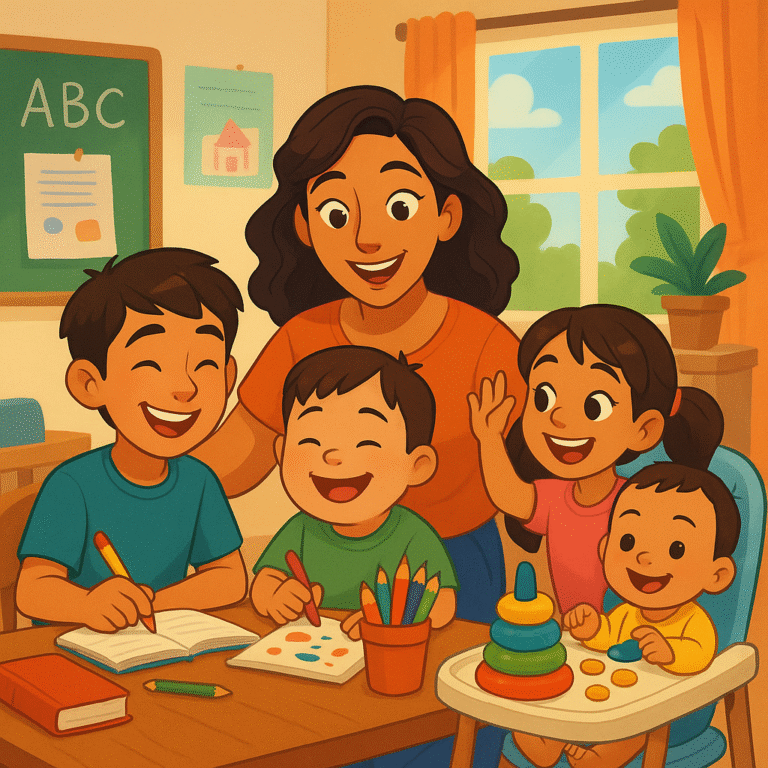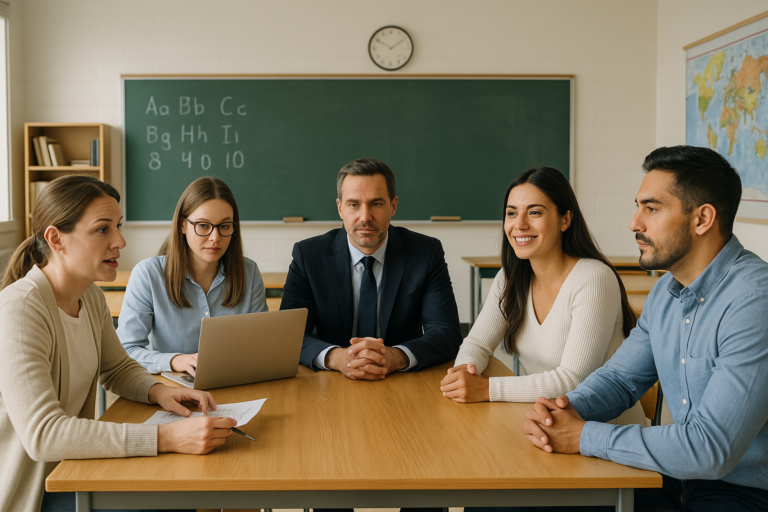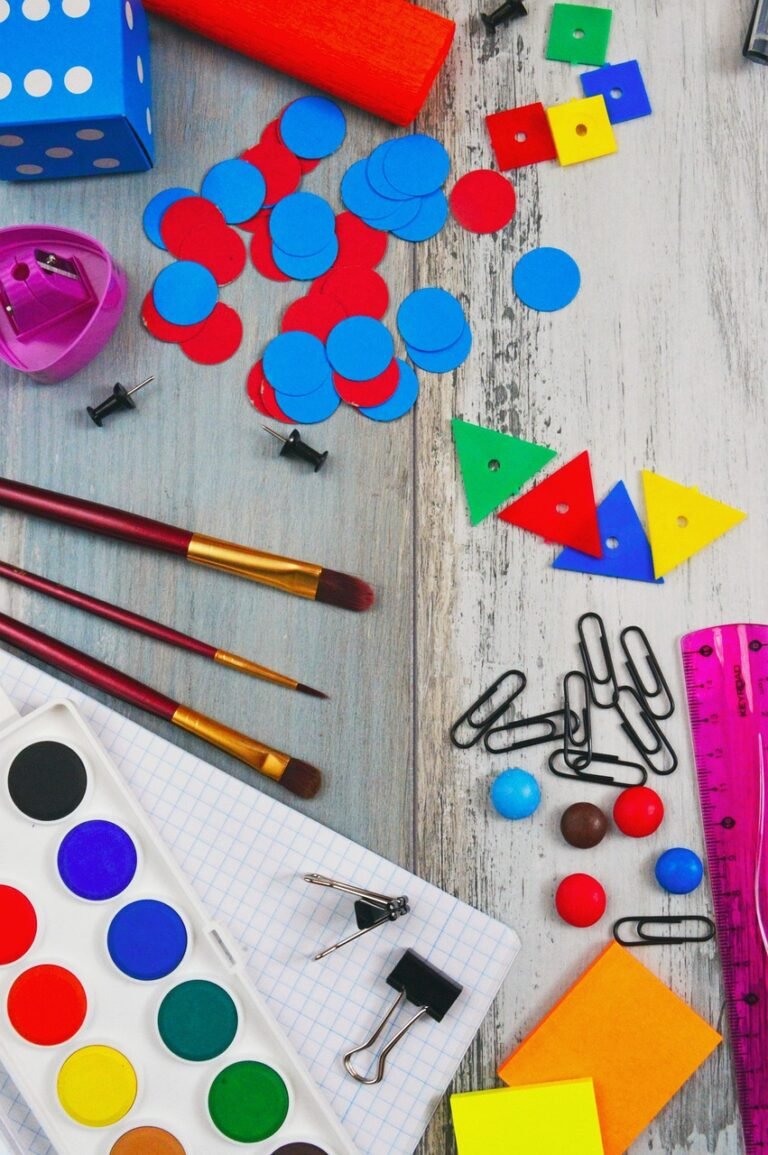Physical Address
304 North Cardinal St.
Dorchester Center, MA 02124
Physical Address
304 North Cardinal St.
Dorchester Center, MA 02124

Do homeschoolers get special‐ed services? Short answer: sometimes. Every state—and even each district—does its own dance with speech, OT, and PT, so your best move is to dive into your state’s homeschool laws (HSLDA’s maps are your friend), sweet‐talk the special ed office (before they head to lunch), and document every conversation like you’re auditioning for a courtroom drama. Keep a simple portfolio of work samples, goal sheets, and progress notes, lean on local co-ops and regional centers for extra support, and celebrate every tiny victory—from sight words to tying shoes—because in the world of special needs homeschooling, progress is the name of the game.

One-on-one tutoring can be a powerful game changer for children with special needs, providing personalized instruction that traditional classrooms often cannot. By tailoring lessons to each child's unique strengths, interests, and learning styles, tutors help accelerate skill development, boost self-confidence, and reduce learning anxiety. Whether your child struggles academically, socially, or emotionally, individualized tutoring offers the focused attention and flexibility needed to achieve real progress and lasting success.

Homeschooling success starts with a solid—but sensible—daily routine: ditch the over-the-top, color-coded spreadsheets and focus on consistency instead. Kick off your mornings with breakfast, movement, or sensory play, tackle two or three core subjects when energy is high, then reset with snacks and outdoor time before moving into hands-on projects or field trips. Visual schedules—think “First/Then” boards or laminated icon charts—keep transitions smooth and anxiety low, while built-in breaks (yes, for you, too) prevent burnout and boost focus. Remember, life skills like cooking and laundry are legit lessons in math, planning, and independence, and even a simple two-block learning day can transform chaos into calm. Consistency, not length, is the secret ingredient to a routine that works for your family—coffee intact and sanity still in check.

Thinking about homeschooling your child with special needs? This encouraging guide walks you through how to get started—no teaching degree required. Learn how to understand your child’s unique needs and create a learning plan that actually works.

If you're new to special education, understanding your child's IEP can feel overwhelming—but it doesn't have to be. An IEP, or Individualized Education Program, is a legal plan designed to support students who need extra help in school. It outlines your child’s current strengths and challenges, sets specific goals, and lists the services and supports the school will provide. The process begins with a formal evaluation, includes a team meeting to decide eligibility, and—if your child qualifies—ends with a customized plan that you help create. You have the right to ask questions, request changes, and bring an advocate or lawyer to meetings. Your involvement isn’t just helpful—it’s essential. With the right information and support, you can be a strong advocate and a steady partner in your child’s education.

Planning a trip to Knott’s Berry Farm with a guest who has special needs? This all-in-one accessibility guide has everything you need for a smooth, meltdown-free day of fun—starting with a stop at Guest Services, your go-to spot for support, including a boarding pass that helps you skip the long lines. You’ll also discover quiet zones for sensory breaks, ride accessibility tips, and KidTrack wristbands to help reunite your group quickly if someone wanders off. Pro Tip: Visit Guest Services first thing in the morning to make the most of your day. Whether you're there for thrill rides, funnel cakes, or a photo with Snoopy, this guide will help you create a stress-free Knott’s experience for the whole family.

Want to level up your Disneyland day? Pair the Disability Access Service (DAS) with Lightning Lane for the ultimate stress-free, line-skipping adventure! While DAS gives your family flexibility and avoids long waits, Lightning Lane lets you reserve faster access to top attractions—and yes, you can use both simultaneously. Schedule a DAS return time for one ride, grab a Lightning Lane for another, and keep the magic moving. It’s a winning combo that helps you experience more rides with fewer meltdowns, more snack breaks, and even a fireworks finale—all without feeling rushed. Trust us, it’s the ultimate Disneyland hack!

Preparing for **Disneyland’s Disability Access Service (DAS) application** can make a big difference in your experience. In this article, we’ll share the key questions a Disney Cast Member asked us, along with our responses related to our son with Autism and our other son with Down syndrome. We’ll also provide helpful tips and insights to guide you through the DAS process.

Planning a Disneyland trip with a child who has special needs? **Disneyland’s Disability Access Service (DAS)** ensures your family can enjoy the magic without the stress of long lines. This program allows guests with disabilities to schedule return times for attractions, offering a more flexible and accommodating park experience. Whether you register in advance or at Guest Relations, DAS helps make your visit smoother, especially when paired with the **Disneyland app, Genie+, and quiet break areas**. Discover how to navigate the park with ease, maximize your DAS benefits, and create unforgettable memories with your child!

Implementing a **token economy in the classroom** is an effective strategy for fostering positive behavior and building structured learning routines for students with special needs. This reinforcement system helps students understand expectations by earning tokens—such as stickers or tally marks—for completing tasks, following directions, and demonstrating appropriate behavior. Over time, educators can gradually increase academic expectations while reducing reliance on external rewards, helping students develop independence and intrinsic motivation. By using a **clear reward system, a hierarchy of incentives, and smooth transition strategies**, teachers and support staff can create a supportive learning environment that encourages engagement and success.